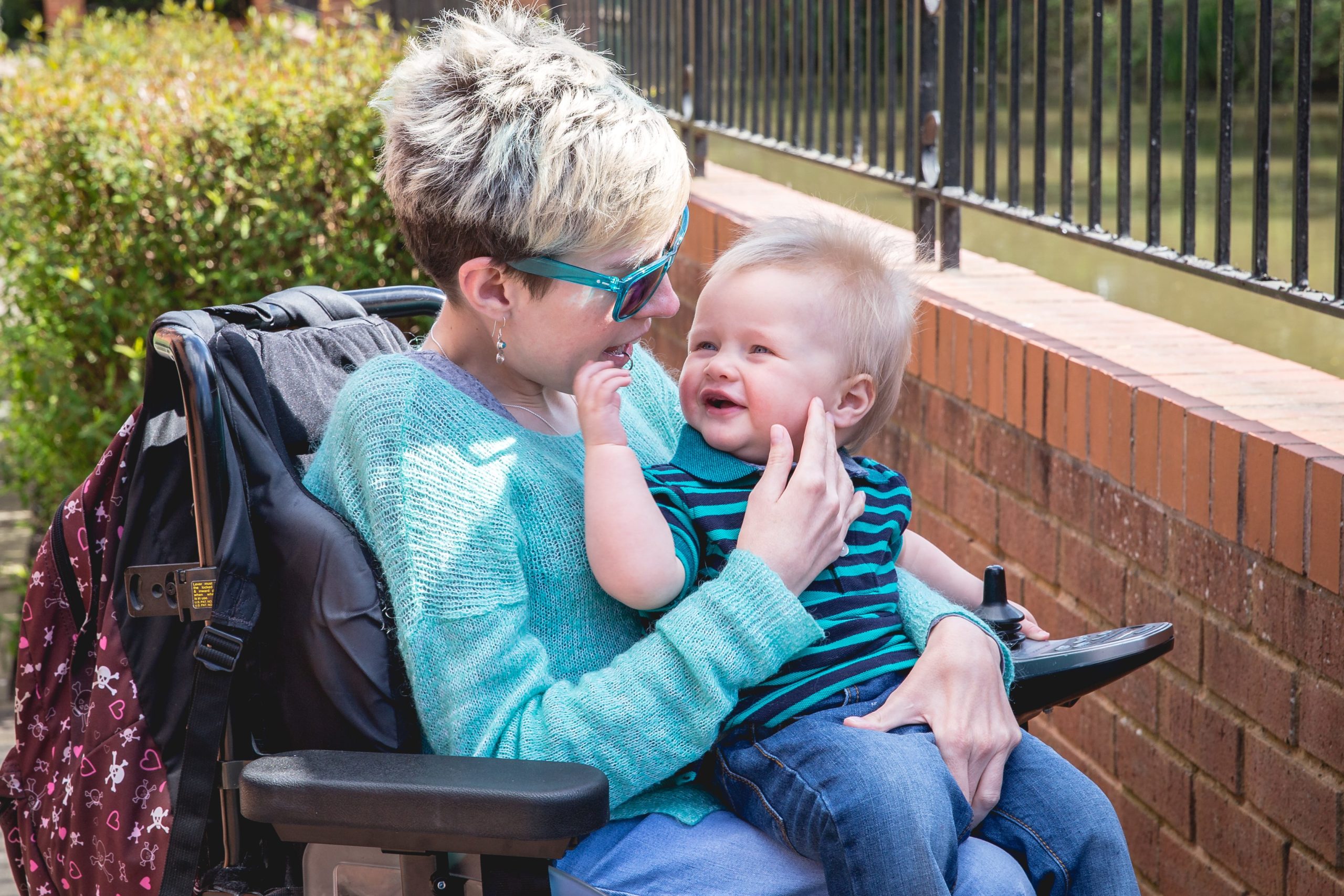Adults, Health and Wellbeing

Adults, Health and Wellbeing
Last reviewed November 2024
Your GP or local hospital consultant can refer you to a specialist neuromuscular centre.
- UK Regional Neuromuscular Centres for adults >
- MDUK also has other information about Specialist Neuromuscular Centres in the UK >
Your team may refer to:
These were written before the new disease-modifying drug treatments became more widely available. Even then, recommended standards of care for children, young people and adults varied and were based on:
- whether they could sit, stand or walk
- whether their breathing was affected by their SMA
- what other daily living activities they could manage.
You can follow the links to find:
The individual chapters in the guide:
- Chapter 1 – Introduction
- Chapter 2 – Genetics and diagnosis
- Chapter 3 – Physiotherapy and Rehabilitation
- Chapter 4 – Orthopaedic Management
- Chapter 5 – Nutrition, Growth and Bone Health
- Chapter 6 – Breathing (Respiratory and Pulmonary Care)
- Chapter 7 – Other Organs and Systems
- Chapter 8 – Medication
- Chapter 9 – Emergency Care
- Chapter 10 – Anaesthetics
- Chapter 11 – Administration of new treatments for SMA
- Chapter 12 – Ethics and Choices
As SMA causes muscles to get weaker, it affects posture and movement. How much weaker and what effect this has day-to-day is very individual. The support and services people want and get can also vary greatly.
Breathing problems may be common for anyone whose SMA means they are unable to sit or are able to sit but not walk . Breathing problems are rare for anyone who has SMA but is able to walk.
Difficulties with eating and diet are more common for people who are unable to sit without support or people who are able to sit but not walk. They are not so common for people who can walk. For advice on diet and other care and management..
People with SMA can have problems with the bones that are supported by the muscles (orthopaedic problems). How much of a problem – and what effect this has day-to-day is very individual.
What’s possible for me?
The two treatments potentially available for adults are nusinersen (Spinraza™) and risdiplam (Evrysdi™).
If you are already seen by a Regional Neuromuscular Centre > you can make an appointment for an assessment and talk through which option might be best for you. If you are not being seen at one of these Centres, ask your GP to make a referral. Not all Centres provide these treatments.
What experiences have others had?
The impact of SMA is very different for each person, as is the response to any treatment. What is suitable for you and what outcomes you may expect, always need to be discussed with your own specialist team. Any decisions need to be made jointly with them.
You might, still be interested, and find it useful, to hear from others about:
- what they have chosen
- how they made their decision
- what having that treatment is like
- what difference it is making for them.
Many people post on Facebook, Instagram, blogs and vlogs about their experiences of Spinraza™ and risdiplam. There are also some groups specifically focusing on, for example, experiences of risdiplam.
In this July 2021 podcast Martyn Sibley talks to Emma, Ross and Olivia about their first experiences with Risdiplam:
For many access to mental health support is a high priority which is often overlooked. The next page outlines what may be available.
Some people who have SMA have difficulty opening their mouths and with swallowing. This can make cleaning teeth and dental care challenging. Added to this, local dentists may not be wheelchair accessible. They may not be set up to treat anyone who needs careful positioning.
You may need to be seen by the NHS Special Care Dental Service. Ask your dietitian or other member of your clinical team or GP for advice.
For More Information see:
The SoC also recommend that anyone with SMA should have an Emergency Healthcare Plan (EHP). This is a written plan of action that any medical team can follow if you become unwell. It is best to agree your plan while you are well. What is in it will depend on the impact your SMA has on you. You can find more information about what should be in there in Chapter 9 Emergency Care of A Guide to the 2017 International Standards of Care for SMA.
Care and management of SMA has made a huge impact on people’s quality of life and life expectancy. But some people who have SMA remain vulnerable to the potential for life threatening illness and complications.
An Anticipatory Care Plan (ACP) or Advance Care Plan sets out what actions should be taken if a person’s condition changes in this way. It may include:
- An Advance Statement – of wishes, preferences and priorities. It may nominate a named spokesperson
- An Advance Decision to Refuse Treatment (ADRT)
- Nomination of a Lasting Power of Attorney (LPA) for health and welfare. This is someone who is legally empowered to make decisions on behalf of the person if they do not have mental capacity at the time. It can include the power to make decisions about life sustaining treatment. This will depend on the level of authority granted by the person.
- Context-specific treatment recommendations such as emergency care and treatment plans, treatment escalation plans, cardiopulmonary resuscitation decisions, etc.
Advance Care Planning discussions can take place over time, between people and those important to them. This can include family, friends, people in their communities as well as with health and care professionals.
For more information, talk to your clinical team or have a look at some of the following:
